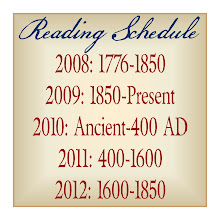She experienced slavery for the first time when her family moved to Cincinnati. She met run away slaves, abolitionists and heard their stories, she also saw race riots and began to aid fugitive slaves from the South. She was very "stirred up" to hear of the "heartless hypocrocy" of forcing children from parents, husbands from wifes and the fact that even though slaves were expected to be Christians, sometimes even married in churches, their marriages were not legal and when spouses were separated they were expected to marry someone else where they went. The quote that upset her the most, she heard among slave owners, traders, and catchers, was "they don't have the same feelings that we do." (She even puts it in the book. Mrs. Marie St. Clare says it.)
In 1836 she married Calvin Stowe and in 1850 the moved to Maine (where he worked at Bowdoin College). They had seven children. The first two were twins, one of which was named Eliza. Their fourth child Samuel died a year after he was born from Cholera. It was there, after the passage of the Fugitive Slave Act, that Harriet wrote Uncle Tom's Cabin.
It was first published as a series in an abolitionist paper. When it was published into a book, by a Boston publisher, it sold 10,000 copies in the first week and 300,000 copies in it's first year. But the book later became almost out of print in the middle of the twentieth century because of the harsh feelings left over from both sides of Emmancipation. It wasn't until the 1960's (during yet another civil rights movement) that it regained popularity.
Of, Uncle Tom's Cabin, she said that she felt it was "forced upon her by the horror of slavery". She was not worried about creating a work of literature as much as she was to persuade people through reading literature. The book made her an instant celebrity and she traveled much to promote the book and to urge those that read it to stand up against slavery.
Uncle Tom's character was symbolic of Christ. She said that the death scene of his character came to her as if in a vision, that "I only put down what I saw. God wrote it."
Stowe won the respect of famous people like, Tolstoy and Abraham Lincoln. In fact when she met Abraham Lincoln, he greeted her as, "the little woman who wrote the book that made this great war."
She also met and corresponded with people like, George Elliot, Oliver Wendell Holmes and Lady Byron.
When asked if Uncle Tom's Cabin was a true story Harriet wrote a Concluding Remarks chapter to ad to the book in the second paragraph it reads:
"The separate incidents that compose the narrative are, to a very great extent, authentic, occurring, many of them, either her own observation, or that of her personal friends. She or her friends have observed characters the counterpart of almost all that were introduced; and many of the sayings are word for word as heard herself, or reported to her."
Her work has since been made into a play and is considered today to be a classic.
Harriet went on to write almost another book a year as well as poems, biographical sketches, childrens books and travel books, but was always in financial hardship. Before she died she had written over 30 novels. She is only remember, though, for her first.
Harriet died on July 1, 1896





1 comment:
Thank you so much, Shimmy Mom, for the information on Harriet Stowe. I know the research and the typing took you some time, and I appreciate your effort. I knew some of the information already, and some was new. It made me want to read her other works, which I know I won't for now, for lack of time. Again, the precious time!
Magali
Post a Comment